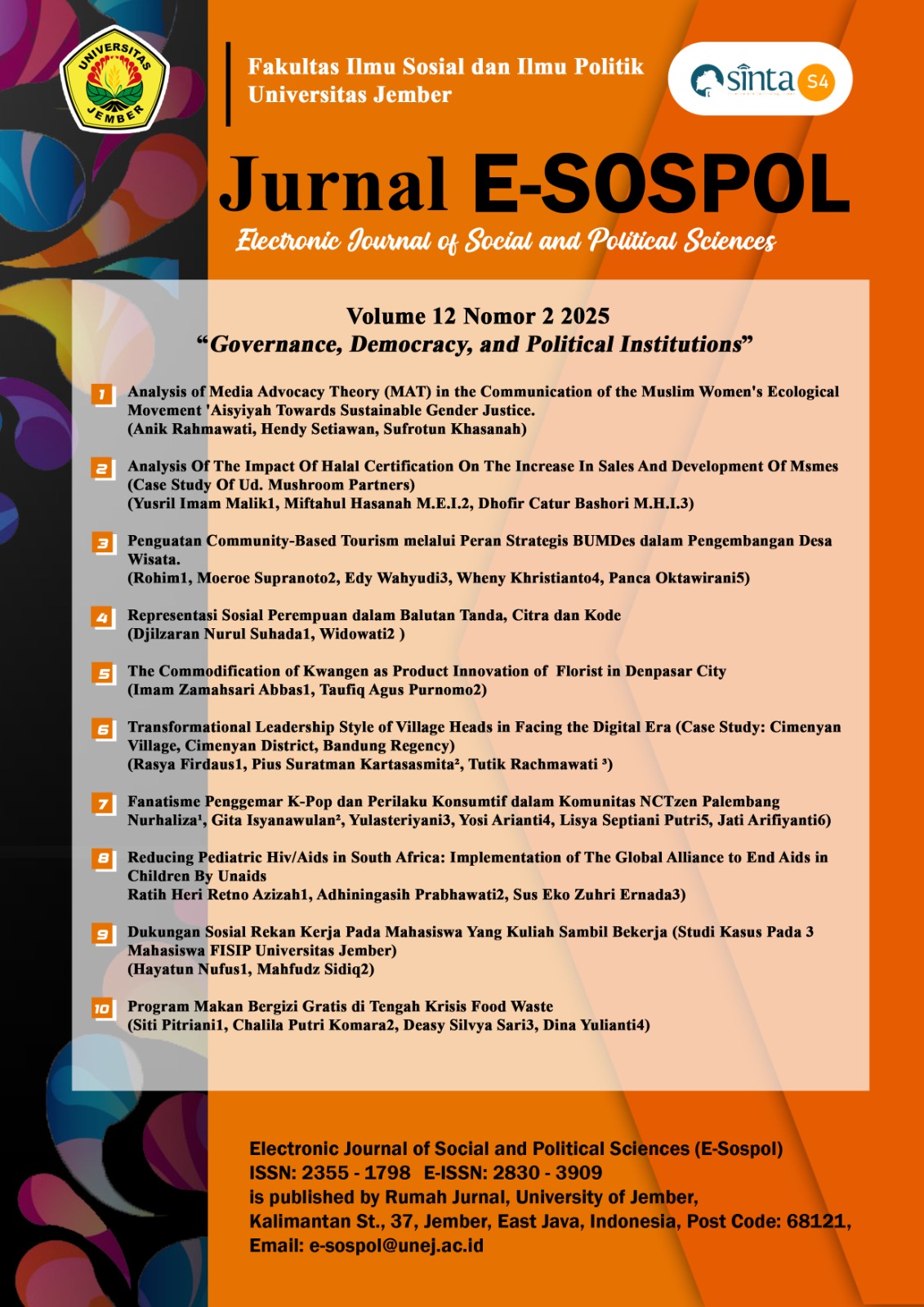The Commodification of Kwangen as Product Innovation of Florist in Denpasar City
DOI:
https://doi.org/10.19184/e-sospol.v12i2.53885Abstract
The existence of the kwangen bouquet on Tiktok has been responded positively by the Balinese people. Objects that are usually used as a means of their prayers have now changed form and meaning in the hands of florists in Denpasar. Kwangen has commodified as a innovation strategy product for florists who create. This certainly attracts the attention of many because this innovation was born from inspiration that contains spiritual meaning and closely related to the lives of Hinduism in Denpasar. This research uses a qualitative approach using observation methods, in-depth interviews, and literature studies on literature sources containing kwangen and social media of florists who made kwangen bouquets. Data was collected to see how florists use kwangen bouquets as a strategy for their business innovation by knowing the prevailing social actions. In addition, this study also traces the commodification process that occurs in kwangen bouquets by looking at changes in the meaning, value, and function of kwangen and finding out the responses of various participant to this innovation. The results of the research showed that all florists used three of the four existing social actions. One of the actions applies to all florists without exception, while the other two only a few of them are correlated to the social action. The changes in meaning, value, and function between kwangen and kwangen bouquet are visible in the differences found between the two.
Downloads
Downloads
Published
Issue
Section
License
Penulis yang mengusulkan naskahnya untuk dapat diproses penerbitannya pada e-SOSPOL dianggap telah menyetujui beberapa hal sebagai berikut:
1. Penulis tidak dapat menarik naskah yang telah usulkan untuk diproses hingga mendapat jawaban dari Ketua Dewan Penyunting atas status naskah artikel ilmiahnya (diterima atau ditolak untuk diterbitkan).
2. Penerbit tidak bertanggung jawab terhadap kasus plagiasi atas artikel yang terbit pada e-SOSPOL
3. Penerbit tidak bertanggung jawab atas data dan isi dari artikel yang diterbitkan pada e-SOSPOL, dan sepenuhnya merupakan tanggung jawab penulis.







